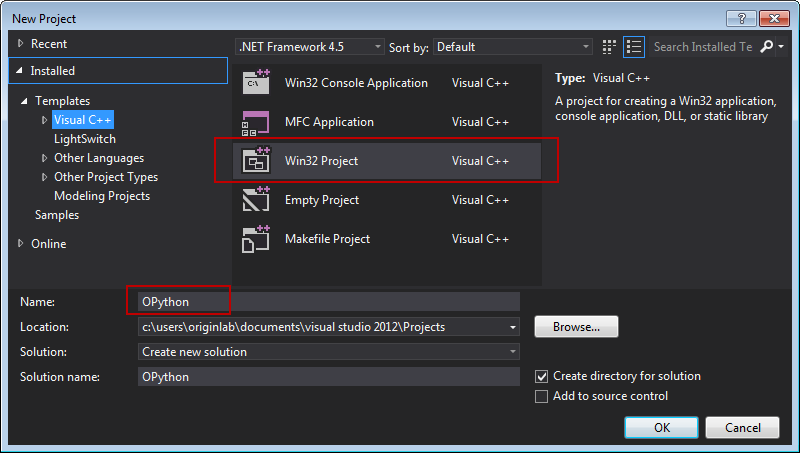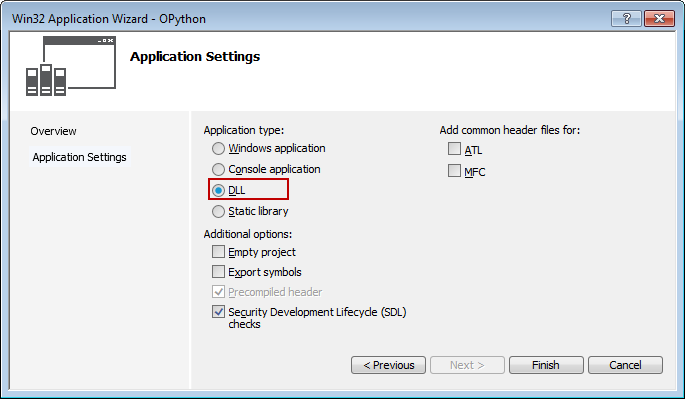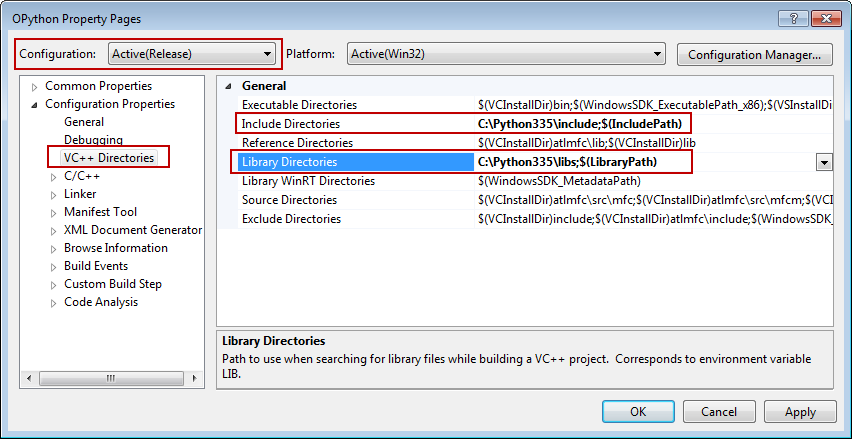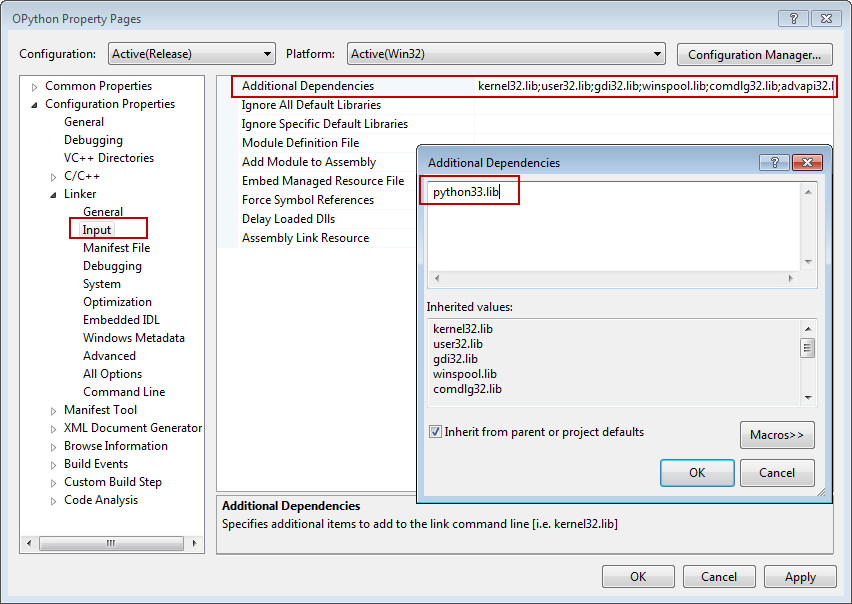Note: 32-bit DLLを作成したので、32-bit版のOriginで使用できます。
#ifndef _OPYTHON_H_ #define _OPYTHON_H_ #ifdef _OPYTHON_CPP_ #define OP_API __declspec(dllexport) //use in VC #else #define OP_API //OCで使用 #pragma dll(OPython) //この行は重要です。OCで使用するとき、Originは、このDLLを検索することで関数本体を探します。Note: dllで生成されるOPythonDLLは拡張名なしです。 #endif OP_API int PY_SayHello(); OP_API float PY_Add(float a, float b); OP_API float PY_Sub(float a, float b); OP_API float PY_Mult(float a, float b); OP_API float PY_Div(float a, float b); OP_API float PY_Mod(float a, float b); #endif //_OPYTHON_H_
#include "stdafx.h" #define _OPYTHON_CPP_ //use this macro to identify whether OPython.h is included in VC(when create the DLL) or OC(when use the DLL) #include "OPython.h" #include <Python.h> class PythonManager { public: PythonManager(); //init python environment ~PythonManager(); //clean python environment }; PythonManager::PythonManager() { Py_Initialize(); } PythonManager::~PythonManager() { Py_Finalize(); } OP_API int PY_SayHello() { PythonManager pm; PyObject* pModule; PyObject* pFunc; //call python function, with no parameters int nRet = 0; pModule = PyImport_ImportModule("myLib"); if ( NULL == pModule ) return nRet; pFunc = PyObject_GetAttrString(pModule, "SayHello"); if ( pFunc ) { PyObject* pRet = NULL; pRet = PyEval_CallObject(pFunc, NULL); PyArg_Parse(pRet, "i", &nRet); } return nRet; } static float _call_float_float(LPCSTR lpcszFunc, float a, float b) { PythonManager pm; PyObject* pModule; PyObject* pFunc; //call python function, with multiple parameters float fRet = 0; pModule = PyImport_ImportModule("myLib"); if ( NULL == pModule ) return fRet; pFunc = PyObject_GetAttrString(pModule, lpcszFunc); if ( pFunc ) { PyObject* pParams = NULL; pParams = PyTuple_New(2); //create tuple to put parameters PyTuple_SetItem(pParams, 0, Py_BuildValue("f", a)); PyTuple_SetItem(pParams, 1, Py_BuildValue("f", b)); PyObject* pRet = NULL; pRet = PyEval_CallObject(pFunc, pParams); PyArg_Parse(pRet, "f", &fRet); } return fRet; } OP_API float PY_Add(float a, float b) { return _call_float_float("Add", a, b); } OP_API float PY_Sub(float a, float b) { return _call_float_float("Sub", a, b); } OP_API float PY_Mult(float a, float b) { return _call_float_float("Mult", a, b); } OP_API float PY_Div(float a, float b) { return _call_float_float("Div", a, b); } OP_API float PY_Mod(float a, float b) { return _call_float_float("Mod", a, b); }
LIBRARY "OPython"
EXPORTS
;Functions to export
PY_SayHello
PY_Add
PY_Sub
PY_Mult
PY_Div
PY_Mod



